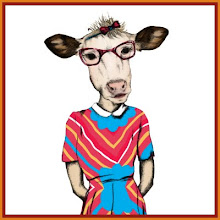Afro-Leo had a special treat yesterday at INTA, a whole session just for him! The Regional Update: Africa session brought together four very knowledgeable and well spoken African attorneys. Completing quite the feat, the panel managed to give a decent overview of most of the continent in just over an hour.
The panel gave us a very optimistic view of the future, including improvements in new trademark legislation, steps to implement recent legislative changes and increased enforcement of trademark laws.
Legislative Developments
A number of countries are in the process of changing, or have recently updated, their trademark legislation. South Africa, Namibia, Djibouti and Rwanda all have new Trademark Acts in the works. And it looks like Zambia may soon begin working on a new act as a working group has recently formed to begin tackling this task.
Zimbabwe, Ethiopia, the Gambia, Uganda and Tanzania have recent Acts or amendments to old acts, which those countries are working to implement. Ethiopia and the Gambia are moving along well in their implementation. Zimbabwe has more pressing issues at the moment. Kenya is also working to implement its existing modern legislation.
Special notice was given to Mozambique, perhaps the brightest shining star in African Trademark legislation. Mozambique is celebrating the 10th anniversary of its Trademark Act. The act is working well in practice, there are provisions for compliance with the Madrid Protocol and the trademark office has a good staff with a very capable registrar.
EAC
William I. Maema discussed the trademark implications of the forming East African Community. Kenya, Uganda, Tanzania, Burundi and Rwanda hope to have the EAC common market in place by next year. This common market will mean harmonization of trademark laws and coordination of enforcement activities. The EAC countries also plan to introduce specialized anti-counterfeiting police units and training for the area’s customs units. There is also the potential to introduce mandatory sentencing for counterfeiting crimes. (Currently, most of the area’s countries have maximum sentences, but no minimums.))
Tanzania’s Two Systems
August Mreme gave specific information regarding Tanzania’s two separate trademark systems. The existence of two different systems within one country can sometimes take foreigners attempting to do business in Tanzania by surprise. There are historical reasons for the existence of two systems, relating to the way in which the government was set up when Tanganyika and Zanzibar joined together.
Both systems include recently amended trademark laws. Tanganyika amended its Merchandise Act in 2008 and Zanzibar introduced its Industrial Property Act the same year. Tanganyika's Merchandise Act introduced zonal offices around the territory, defined “counterfeit goods,” created a specialized task force comprised of officials from a variety of government agencies, and strengthened enforcement with anton pilar orders, mareva injunctions and new punishments. Zanzibar’s Industrial Property Act extended protection to non-traditional types of marks such as sound, color and smell. Service marks and well-known marks are also now protected. Enforcement measures were increased here as well, with new boarder measures, remedies and injunction possibilities.
Improvements Needed
While optimism is high, there is still much work needed. In general, many countries have decent legislation but Acts do not have implementing regulations and laws do not have proper enforcements on the ground. A few countries, most notably Eritrea, Libya and Somalia, are in desperate need of trademark reform. Unfortunately, countries needing high levels of reform often have much more pressing issues with which to deal more immediately.
Madrid also remains a big sticking point in Africa. Several brand owners at INTA mentioned that the lack of Madrid compliance in Africa is one of the main reasons they do not attempt to regiser their trademarks there. The number of countries acceding to Madrid is increasing, but the countries do not always have the matching legislation.
Going Forward
African countries are moving in the right direction. Many issues still exist, but countries are addressing the issues as able. OAPI remains a strong player in these improvements. (Simon Brown described OAPI as an “African beacon – how a regional system should work.”) But the countries cannot do everything alone. Brand owners demand enforcement and protection of their marks, yet are reluctant to register their trademarks. The countries are putting the necessary legislation in place, but the legislation cannot offer protection without the brand owners doing their parts. As August Mreme explained, if brand owners do not register their marks to protect their brands, counterfeits from the Middle East will destroy their brand image in Africa.
[For those wishing to know more about the panel, the speakers were: Simon Brown of Adams & Adams in South Africa, William I. Maema of Iseme, Kamau & Maema Advocates of Kenya, and August N. Mreme of Mkono & Company Advocates of Tanzania. The panel was moderated by Gerard du Plessis from Adams & Adams of South Africa.]










